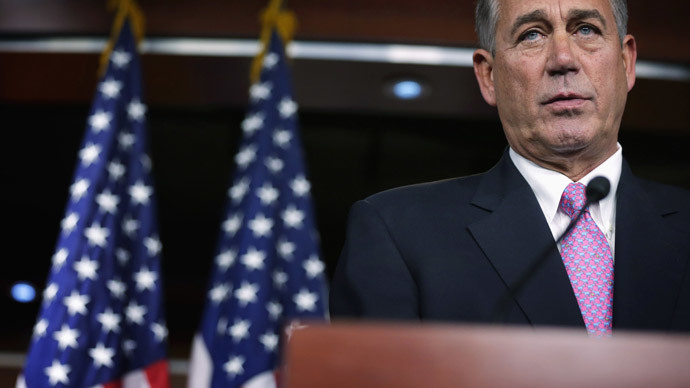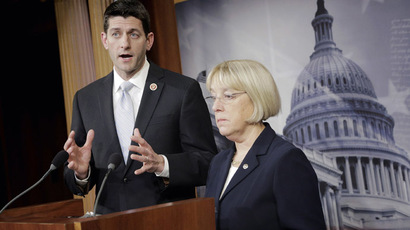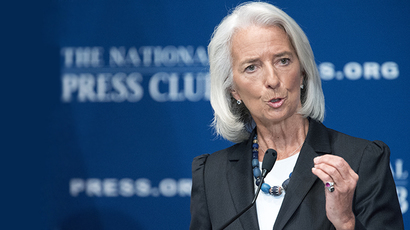US House raises $17.2 trillion debt ceiling, no strings attached

The US House of Representatives has agreed to raise the government’s borrowing cap until March 2015, without specifying the exact limit. It's a huge shift as the bill was approved for the first time in three years with no conditions from Republicans.
The bill next goes to the Senate, where approval is expected from the Democratic majority.
The 221-220 vote was a landmark victory for Democrats, and will put an end to Washington’s budget enmity, which led to a two week US government shutdown in January.
Raising the debt ceiling, an action Republicans have fought against staunchly for three years, means the US will increase the $17.2 trillion borrowing limit and be able to meet promised financial obligations.
Republican House Speaker John Boehner promised the February 27 technical default deadline, set by Treasury Secretary Jack Lew, would be met in good faith.
The vote was “a positive step in moving away from the political brinkmanship that's a needless drag on our economy,” White House spokesman Jay Carney said in a statement after the vote.
The bill is “clean” as there are no strings attached, no extra conditions President Obama and Democrats need to negotiate in order to raise the debt ceiling.
John Boehner urged his party not to filibuster and prolong the process, and lamented the vote as a “disappointing moment” but would help the party better focus on 2014 elections.
On Friday, the Treasury was forced to start “emergency measures” after spending its borrowed time and money.
In December, Democrats and Republicans agreed to a $1.01 trillion budget that will increase budget spending by $63 billion in 2014 and 2015 and cut $23 billion off the budget deficit over 10 years without hiking taxes.
The two-year budget agreement could usher in a new era of cooperation in Congress, which has been viciously divided over raising the debt ceiling to fund the budget.














